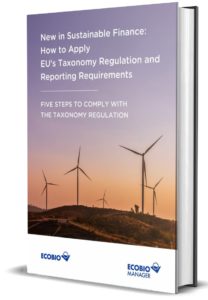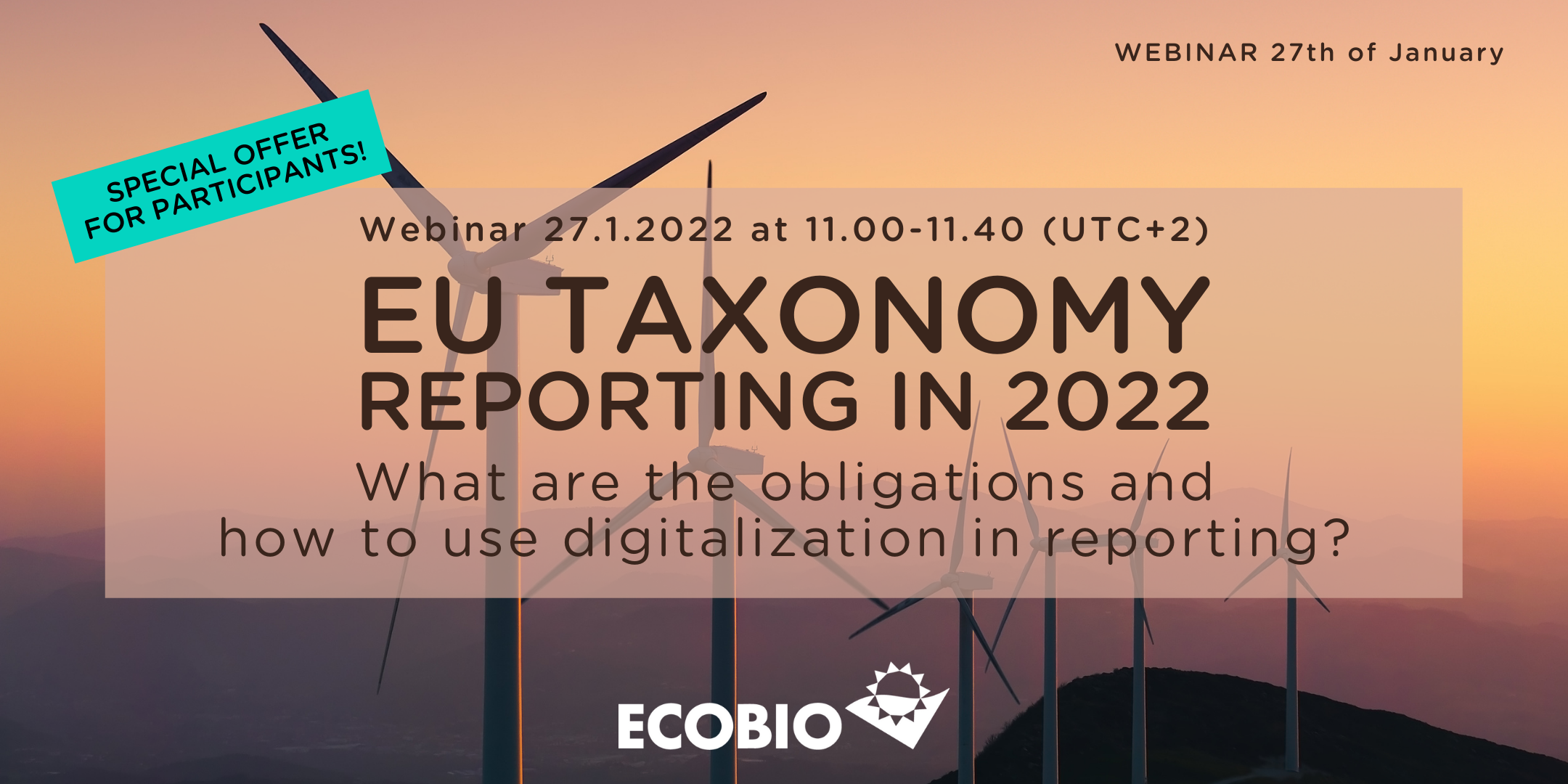Corporate Sustainability Reporting Directive (CSRD) is in action since January 2023. CSRD will strengthen and standardize the rules for how companies are required to report on their social and environmental activities and their impact on people and the planet. Currently Corporate Sustainability Reporting Directive impacts approximately 50 000 companies in Europe.
CSRD timeline and what to expect in the future
The Corporate Sustainability Reporting Directive applies to companies in the following order:
- From January 2024, listed companies with more than 500 people (i.e. those already covered by the NFRD are obliged to prepare a statement of non-financial information and publish information according to the EU taxonomy).
- From January 2025, listed and unlisted companies that meet at least two of the following criteria: more than 250 employees, revenue of 20 million euros or more than 40 million euros in turnover.
- Listed SMEs from 1 January 2026.
- From January 2028 CSRD expands to third-country companies with turnover over 150 million euros.
Companies subject to the CSRD will have to report according to European Sustainability Reporting Standards (ESRS).
ESRS entered a four-week feedback period for the first set of Sustainability Reporting Standards, the feedback period lasts from 9th of June to 7th of July 2023.
These mandatory reporting standards aim to ensure that companies are fully transparent about their impact on people and the environment. The standards will also be a key tool in trying to extinguish green washing. The new standards will assist companies in communicating and managing their sustainability performance more efficiently.
After the four week feedback period, the commission will consider the feedback given and then finalise the standards. When adopted, the standards will be used by companies that are subjected to CSRD (Corporate Sustainability Reporting Directive) reporting requirements. This will be another step forward to the goal to achieve a sustainable EU economy.The requirements for different companies will be phased in gradually, depending on factors such as company size and revenue.
Additionally, all sustainability reports must be verified by an independent assurance provider, to ensurereliable information. CSRD also supports and requires reporting in digital format.
Prepare now for CSRD reporting
In 2023 prepare reporting systems. Ensure you have clear Key Performance Indicators (KPI’s), goals and a plan in place for 2024 reporting requirements.
In 2024 gather data trough out the year for 2025 reporting and review it with your accountant. Note, if your company is subjected to NFRD you are required to report on 2024 data in 2025.
In 2025 review your reporting activities and systems to establish or improve for 2026 reporting. It is also good to note that many companies that are not yet in the scope of CSRD will have to report for the companies that are in the scope because they need information about their supply chain’s impacts.

Corporate Sustainability Reporting Directive reporting requirements
CSRD is adding requirements on top of the Non-Financial Reporting Directive (NFRD). According to the NFRD, large companies must report on:
- environmental matters
- social matters and treatment of employees
- respect for human rights
- anti-corruption and bribery
- diversity on company boards (in terms of age, gender, educational and professional background)
With the Corporate Sustainability Reporting Directive companies need to also report on:
- governance relating to sustainability impacts, risks and opportunities
- impacts of sustainability-related risks and opportunities on the company’s strategy, business and financial planning
- processes for identifying and assessing sustainability impacts, risks and opportunities
- metrics and targets that are used to assess and manage sustainability risks and opportunities
Corporate Sustainability Reporting Directive impact on business strategy
Sustainability will in the future have a bigger role in the evaluation of companies. In addition to the reporting obligations, CSRD sets other requirements for companies. For example, in the future companies must plan how to take climate and other sustainability risks into account in the business model and strategy, as well as the transition to a climate-neutral economy.
The role of the company’s management and board of directors must now be strengthened in accordance with sustainability goals. The interest of customers and investors in responsible and environmentally sustainable businesses has grown. This contributes to the financing companies receive for sustainable and responsible projects.
The direction is clear even for those who have not yet been able to participate in creating responsible businesses. Common sustainable development rules accelerate the market, creating new growth opportunities for companies.
Large companies are already obliged to annually publish information on how much of their operations are in line with the EU taxonomy’s climate and environmental goals. The first EU taxonomy reporting was due in the first months of 2023.
Benefits of CSRD directive
According to the European Parliament, The CSRD will improve the existing legislation (NFRD) by requiring more detailed information from companies’ impact on the environment, human rights and social standards, that are in line with the EU’s climate goals.
What we can expect from adapting to CSRD is
- Standardized reporting on companies’ activities on people and the planet, therefore providing the opportunity to compare sustainability reports to one another.
- Direct finances and investments to activities and businesses that create a positive or ‘net-zero’ impact on the planet and people.
- CSRD pushes management to adapt to or improve their strategies to be aligned with sustainability and EU climate goals.
- CSRD enforces companies’ capability to mitigate risks, such as climate risks that will help companies to ensure longevity.
Adapting to CSRD requirements as soon as possible is recommended, due to the vast scope of the directive. Where to start from depends on the company’s status with sustainability matters and how well they are documented and reported in the past.
Building a reporting system with Double Materiality assessment is a highly recommended starting point as it is required in the directive to be analysed.
If you wish to talk more about CSRD, don’t hesitate to contact us below or send an email to info@ecobio.fi.






 Katrine Hoset
Katrine Hoset Sanna Perkiö
Sanna Perkiö Malena Weuerlander
Malena Weuerlander



